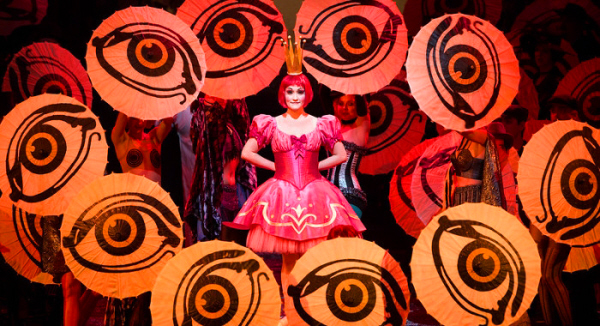Playwright Christopher Durang has figured out why Chekhov should be funny – transposing Chekhovian characters to 21st Century Bucks County, Pennsylvania, Durang has made sense of how rueful melancholy can be hilarious. It might not make sense for us to laugh at landowners missing all the serfs they used to have, but we can easily “get” a fifty-something missing his three channels of black-and-white TV from the 1950s and 60s. It also helps that Durang doesn’t write in a realist style like Chekhov, but a style altogther more absurd and impishly laugh-seeking.
In Vanya and Sonia and Masha and Spike, now receiving a solid revival at Paper Mill Playhouse, Vanya (Mark Nelson) and his adopted sister Sonia (Michele Pawk) have lived their entire, quietly desperate lives in their family’s country house. While they stayed home to take care of their ailing (and now dead) parents, their sister Masha (Carolyn McCormick) has become a successful movie star. When Masha unexpectedly reappears with her twenty-something boy toy Spike (Phillipe Bowgen), the siblings’ stagnant lives are thrown into disorienting – but also exciting – chaos.
I should pause here for just a moment to say “HELLOOO, SPIKE!!!” Bowgen (pictured above) is a stunningly fit young man, and Durang has Spike disrobe at any opportunity. While that is more reminiscent of Inge than Chekhov, it is certainly very welcome in these quarters.
Nelson gives the most Chekhovian performance as the gay Vanya, who quietly lusts after Spike’s bod but gives him a very big comeuppance by play’s end. The other stand-out performance in this production is Gina Daniels as the fortune-telling Cassandra; Daniels’ combination of crack comic timing and warm sweetness is very winning. Recommended.
For tickets, click here.
To learn about Jonathan Warman’s directing work, see jonathanwarman.com.






